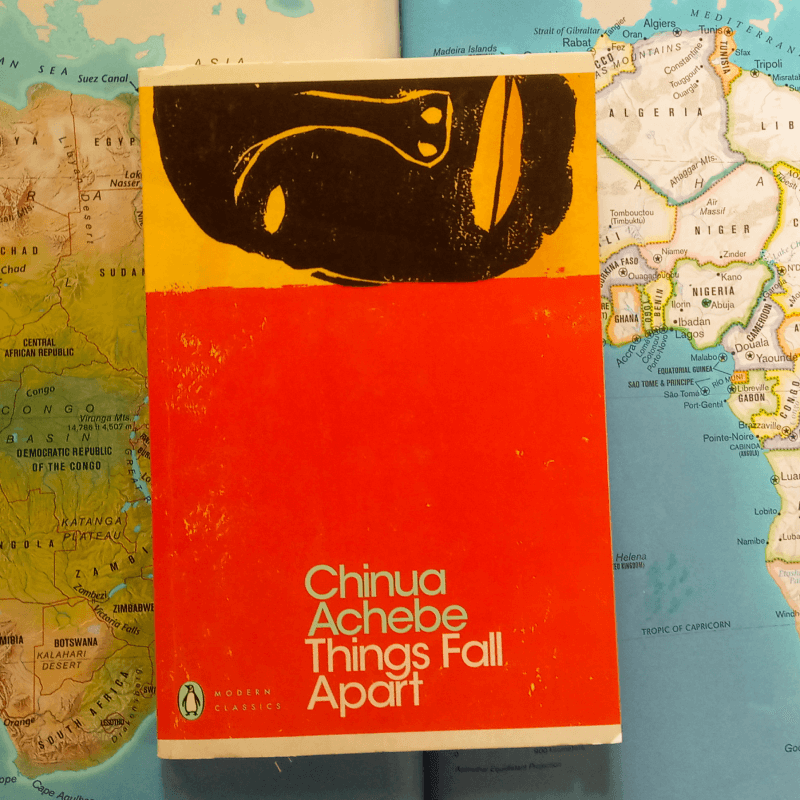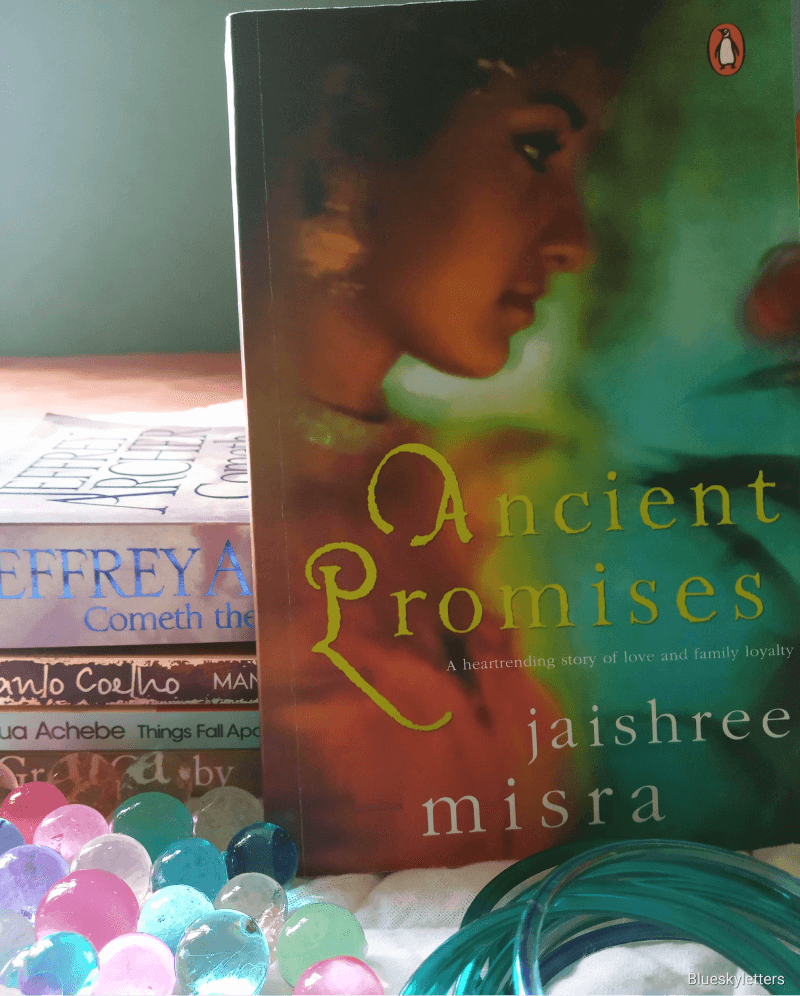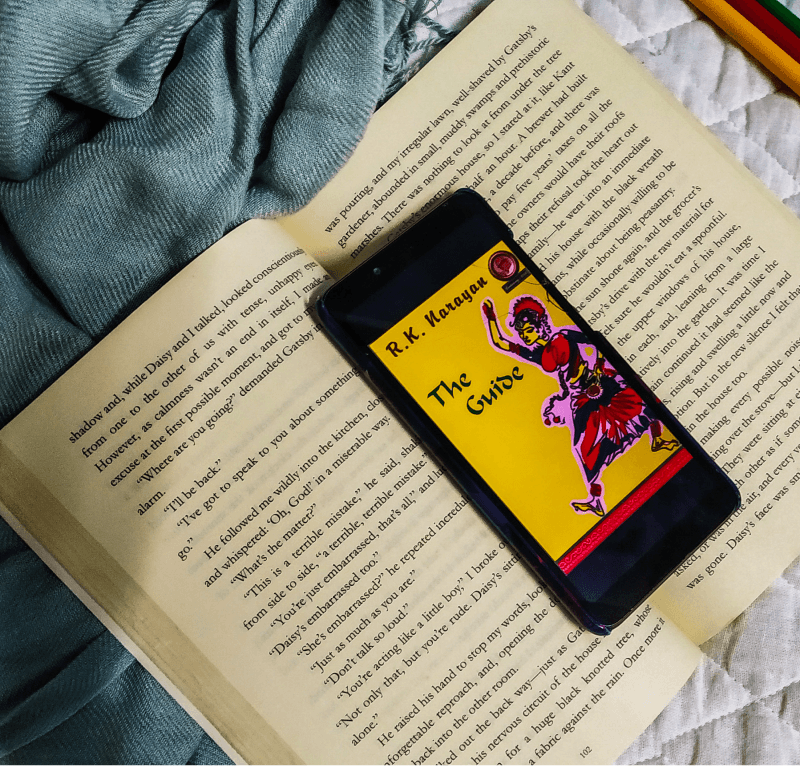A Historical Fiction by Chinua Achebe
As the names suggest, the novel has a tragic ending. What’s unique about this book is that the author clearly paints a picture of the African culture of the savages in Niger in simple language. He is successful in giving the readers an insight into the lives of the villagers in Umuofia by narrating the story of Okonkwo.
Okonkwo is a young and ambitious man who sought success and fame in his life. The ups and downs in his life, the Igbo culture and traditions is the essence of the book. The author presents a true picture of what village life was like before contact with Europeans. Every aspect of Okonkwo’s life is interesting and sometimes surprising. The marriage ceremonies, harvest festivals, human sacrifices etc grips the reader.
What I liked the most is obviously being able to know about a different culture and its traditions. It makes us have a wider perspective of people and culture. It surprises us how different the people of the world are. Okonkwo and his notions seem strange to us.
We learn that the Igbo people’s staple food is cassava and palm oil, their wedding gifts include gallons of wines, human sacrifices are done once in a while, locusts are also a preferable food item, they worship nature and many other facts.
The concept of masculinity and strength is very down rated. For example, Okonkwo describes every act of weakness and cowardice as “womanly”. When his son fails to be as active as himself, he calls him a woman. He doesn’t even accept that women are skilled even when he understands that his daughter Ezinma is more talented. Okonkwo frequently says, “I wish Ezinma were a girl”. It seems to suggest that he secretly desires affectionate attachment with his actual sons, but avoids admitting it as he thinks that affectionate is equal to weakness. It is interesting to note that Okonkwo doesn’t wish that Ezinma were a boy because she exhibits desirable masculine traits; rather, it is their bond of sympathy and understanding that he values.** Although women are not much valued in the village, their most holy priest is a woman, Ekinza. Her prophecies and advice are highly valued by the men.
In total, the novel is an interesting read, though sometimes I felt that it got a little monotonous.
Goodreads rating: 3.7/5 My Rating: 4/5
Summary
The novel is divided into three parts.
Part 1 :
Okonkwo is a famous wrestler in the village of Umuofia, from a tribe Igbo. He is famous across lands for his strength, hardworking nature, and fierce masculinity. His father Unoka was a very lazy man who died a shameful death with many unpaid debts. He wasn’t even given the honour of a proper burial. Okonkwo detested his father and put in a lot of effort to erase the shameful legacy of his father. So, he started to work hard at a very young age and acquired wealth, land, many wives and respect. The village cultivates yam as their staple food. The villagers were very superstitious.
The traditions of the Umuofians are very unique. Their marriage functions, funerals, punishments, worships etc are interesting to read about.
There occurs a murder in the village. The culprits happened to be from another village. As a peace negotiation, Ikemefuna, the son of the murderer is given to Okonkwo to take care of. He develops an attachment with this boy gradually, so does the boy. The boy lives with Okonkwo’s family and he grows fond of him, although Okonkwo does not show his fondness so as not to appear weak. The boy looks up to him and considers him a second father. After some years, the Oracle of Umuofia eventually pronounces that the boy must be killed. This comes as a great shock to Okonkwo. But he doesn’t disagree. To avoid seeming weak and feminine to the other men of the village, Okonkwo strikes the killing blow himself even as Ikemefuna begs his “father” for protection. Later he becomes very depressed.
His sickly daughter Ezinma falls unexpectedly ill and it is feared she may die but she later recovers. During a gun salute at Ezeudu’s funeral, Okonkwo’s gun accidentally explodes and kills Ezeudu’s son. As a punishment. he and his family are sent into exile for seven years and his property is destroyed.
Part 2:
Okonkwo and his family are in exile in Mbanta, his mother’s village. The Christian missionaries started to arrive in the lands and establish churches. They acquire converts gradually and Okonkwo becomes worried about this. His son Nwoye becomes a convert and Okonkwo disowns him. During the last years of exile, he prepares to back to Umuofia. He throws a huge feat for his kinsmen in Mbanta.
Part 3:
The Christian community gradually grows in the villages. Most of the converts are people who are regarded as outcasts by tribesmen and also women whose twins were killed. They decided to become Christians to have a position in the society. At first, the villagers treated the missionaries with respect and provided space for their activities. One day, the villagers and Christians have a clash and as retaliation, the villagers burn down the church.
Later, Okonkwo and other leaders of the clan are called to the District Commissioner’s office, who is British.They were falsely promised to be treated with respect. But they are taken prisoners and humiliated. They are pended payment of a fine of two hundred cowries which the villagers collect and give. Later during a meeting, Okonkwo beheads a Christian messenger. Because the crowd allows the other messengers to escape and does not fight alongside Okonkwo, he realizes with despair that the people of Umuofia are not going to fight to protect themselves – his society’s response to such a conflict, which for so long had been predictable and dictated by tradition, is changing. This obviously is a shock for Okonkwo. He realizes that his village will no longer have the pride it used to have.
When the District Commissioner comes to Okonkwo’s house to take him to court, he finds Okonkwo’s body hanging from a tree. Among his own people, Okonkwo’s actions have tarnished his reputation and status, as it is strictly against the teachings of the Igbo culture to commit suicide. The book ends with the Commissioner saying that Okonkwo’s story will make a reasonable paragraph in his book named The Pacification of the Primitive Tribes Of Lower Niger.

 Ancient Promises - Book Review
Ancient Promises - Book Review